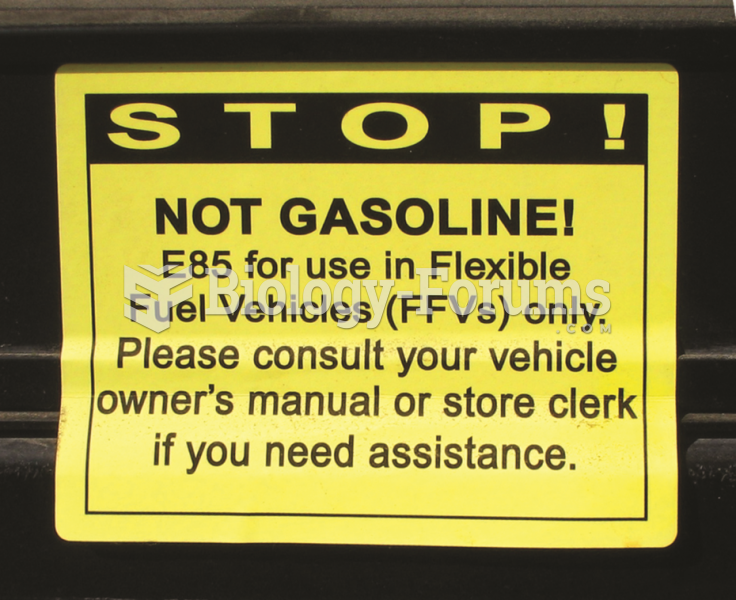|
|
|
For high blood pressure (hypertension), a new class of drug, called a vasopeptidase blocker (inhibitor), has been developed. It decreases blood pressure by simultaneously dilating the peripheral arteries and increasing the body's loss of salt.
Although the Roman numeral for the number 4 has always been taught to have been "IV," according to historians, the ancient Romans probably used "IIII" most of the time. This is partially backed up by the fact that early grandfather clocks displayed IIII for the number 4 instead of IV. Early clockmakers apparently thought that the IIII balanced out the VIII (used for the number 8) on the clock face and that it just looked better.
Increased intake of vitamin D has been shown to reduce fractures up to 25% in older people.
ACTH levels are normally highest in the early morning (between 6 and 8 A.M.) and lowest in the evening (between 6 and 11 P.M.). Therefore, a doctor who suspects abnormal levels looks for low ACTH in the morning and high ACTH in the evening.
Approximately 500,000 babies are born each year in the United States to teenage mothers.
 A warning sticker on an E85 pump warning to only use this fuel in vehicles designated as flexible ...
A warning sticker on an E85 pump warning to only use this fuel in vehicles designated as flexible ...
 The tools and equipment needed to perform a compression test include a compression gauge, an air ...
The tools and equipment needed to perform a compression test include a compression gauge, an air ...





